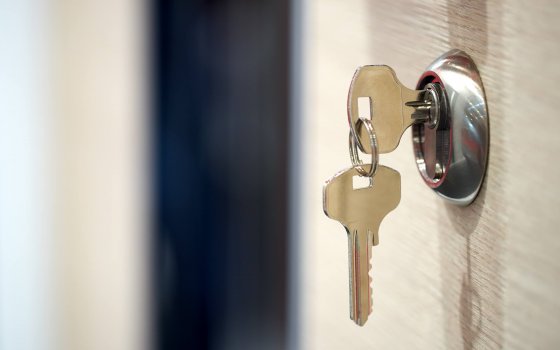- June 21, 2022
- CINC Systems

In early 2022, CINC conducted a survey of community managers, management company executives, and board members throughout the country, with the goal of determining the State of the Community Association Management Industry. The feedback and responses indicated several common concerns for the future of the CAM industry, and highlighted a variety of interesting issues including the desire for more comprehensive personal property security technology in HOAs and condo associations, and the lack of understanding surrounding other important types of community security.
These days, just about everyone has some kind of personal security technology. A digital password saver & encryption service, a doorbell camera, security cameras in their homes–they’re everywhere. So it makes sense that when it comes to the greater scope of protection (beefing up community security), many turn to these same tried-and-true technology-focused solutions. But at the end of the day, a doorbell camera just isn’t going to cut it.
In a recent webinar, “What’s the Worst That Could Happen?” CINC Systems and VIVE Vendor Management Services had the opportunity to speak about the real threats community associations are facing today, and VIVE’s recommendations on what security options are actually going to make a difference in the CAM industry.
Mitigating Liability & Insurance Risks
Every time someone sets foot in your community, you’re assuming a level of risk. When it comes to hired service providers, like landscapers or pool maintenance technicians, the community is assuming a level of risk related to the vendor’s professional accreditation. Verifying that the vendor is properly insured and licensed to do the work legally of course, and guaranteeing that if something goes wrong, the association (and management company!) isn’t going to face a loss.
Similarly, having your own up-to-date insurance is the key to avoiding liability in the event a non-vendor who enters the community encounters some kind of accident or harm.
What’s the Solution? Generating and implementing a vendor compliance program (and hiring a team to maintain it). With a vendor compliance program in place, your vendors are all expected to meet a certain threshold of requirements before ever setting foot in the community. This can include maintaining good standing with local government and certification boards, ensuring their licenses and insurance meet a certain amount of coverage, or taking the time to go through local reviews and verify their success and professionalism. Whatever the steps of vetting look like, creating that framework for vendors to match with is going to be crucial in ensuring long-term success for future vendor relationships in the community.
Garnering the correct insurance will also be an important step.
Protecting Homeowner Information
The amount of data HOAs and condo associations handle can be a little unsettling. Everything from bank and credit card information to PI like phone numbers, emails, and alternative addresses–all of it has the potential to live in a homeowner’s community data repository. And all of it can be so incredibly vulnerable. Without a dedicated technology partner assisting in locking that data down, the information is often one phishing email away from being stolen by hackers. And with how pervasive (and convincing!) phishing emails have become in recent years, it’s now fairly common for even tech-savvy board members to accidentally click the wrong kind of link.
What’s the Solution? Training, training, training! It always comes down to education at the end of the day. Ensuring that board members and community managers are not only knowledgeable about what kinds of cybersecurity threats are out there, but how to spot and avoid them, is a critical component of keeping homeowner data safe. So is partnering with the right technology solution. Taking some of that responsibility out of the hands of the board and giving it to trained professionals who have a stronger grasp on protecting data can make a massive difference.
So, Do You Have $10,000 to Spare?
This was the big question posed to viewers of “What’s the Worst That Could Happen?” And admittedly, that $10,000 is small potatoes compared to the real monetary losses a community can face. But the powerful question still stands: Can your community afford to skimp on the protective services they need to keep homeowners and their information safe? If all you want to add to your condo building or cul-de-sac are more cameras or a gate, there’s a good chance you’re trying to solve the wrong problem. Reach out today to have a conversation about the best security options available to your community.
Related Reads

Blog
Unlocking Manager Potential: How Cephai in CINC Manager Frees Up Time for Engagement
- November 22, 2024

Blog
Keeping Calm and Carrying On: Leadership Tips for Turbulent Times
- November 20, 2024

Blog
AI at Bat: What Umpires, Baseball, and Data Security Can Teach Us About AI Risks
- October 28, 2024

Blog
Do I really need a homeowner app when I have a mobile-friendly website?
- October 14, 2024

Blog
Weathering the Storm: How to Adapt to Soaring HOA Insurance Costs
- October 1, 2024

Blog
How Today’s Generative AI Investment Drives Long-Term CAM Success: A Timeline
- September 16, 2024
